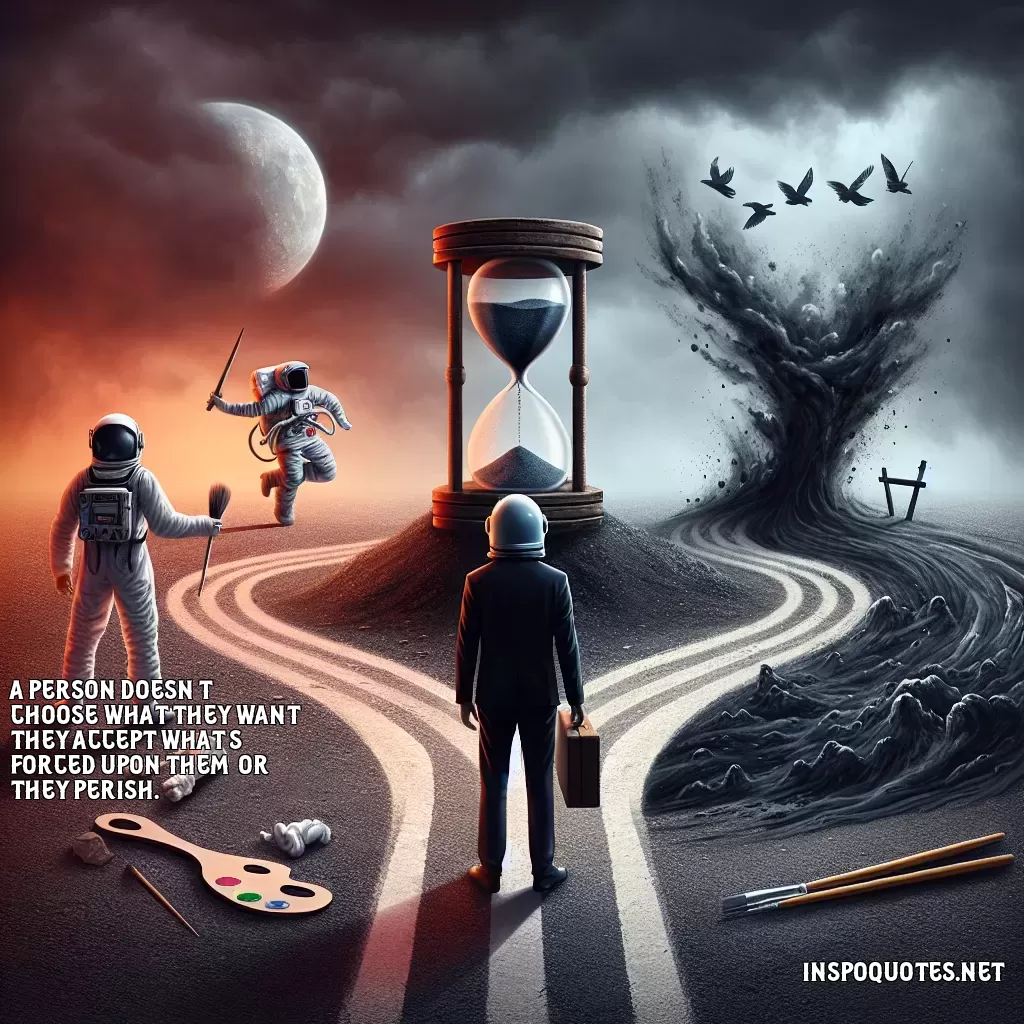
A person doesn’t choose what they want they accept what’s forced upon them… or they perish.

A person doesn’t choose what they want they accept what’s forced upon them… or they perish.
This quote suggests a rather grim perspective on human agency and the nature of choice and survival. It implies that individuals have limited control over their desires and circumstances. Instead of actively selecting what they want, people are compelled to accept the conditions and situations imposed upon them by external forces such as society, fate, or circumstances beyond their control. The alternative to acceptance, according to the quote, is perishing, which can be interpreted both literally and metaphorically. From a literal standpoint, people might be forced into situations where non-compliance or resistance could lead to harm or death—situations like oppressive regimes, extreme poverty, or natural disasters, where choice is a luxury they cannot afford. On a metaphorical level, "perishing" could signify a failure to thrive or succeed in life, representing a social or psychological death rather than a physical one. This perspective invites a discussion on the limits of free will. It challenges the often idealized notion of absolute autonomy by highlighting the constraints imposed by external realities. For instance, socioeconomic factors, cultural norms, and systemic injustices can all serve as forces that dictate the choices available to individuals, shaping their desires and, ultimately, their lives. The quote also evokes a survivalist theme, suggesting a Darwinian struggle for existence where adaptation is key to survival. Here, adaptation means accepting and adjusting to the forces imposed upon a person, highlighting resilience as an inherent part of human nature. Ultimately, this thought-provoking statement encourages reflection on the balance between choice, freedom, and the inevitable necessity of accepting the uncontrollable aspects of life.
Quote By: Henry Miller
Henry Miller was an American novelist and essayist, born on December 26, 1891, in New York City. He is best known for his semi-autobiographical works, particularly "Tropic of Cancer" and "Tropic of Capricorn," which were controversial for their candid exploration of sexuality and the human experience. Miller's writing style blends stream-of-consciousness, narrative, and philosophical reflections, and he is often associated with the literary movements of expatriate writers in Paris and the Beat Generation.
Bio added on: 2025-02-16 10:33:15